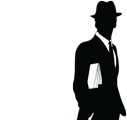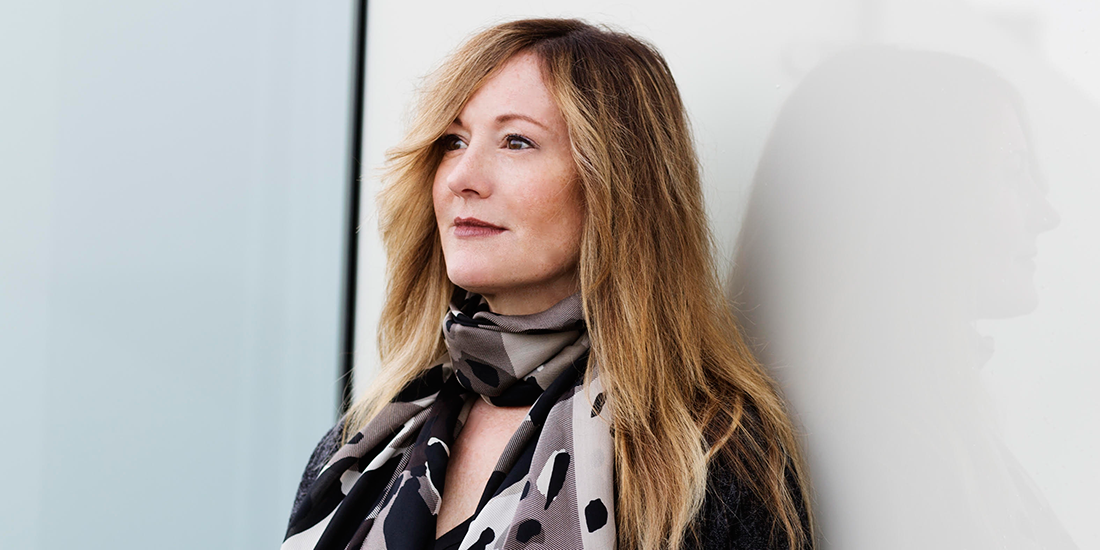Mary Ramos, music supervisor
A car radio to some people is just a car radio. It’s never just a car radio to me.
We’ve got a pretty sweet gig here at The Weekend Edition, but that doesn’t stop us daydreaming about other jobs we wish we could try. Aside from the clichéd movie star, astronaut and professional ice-cream taster, we’d never even consider choosing music for movies to be a profession. Turns out it’s a real thing and Mary Ramos is one of the best in the business. As a music supervisor, Mary is responsible for selection and sourcing music to appear in motion pictures, sometimes even commissioning original pieces from bona fide music superstars. Mary has worked with the likes of Quentin Tarantino, Tom McCarthy, Robert Rodriguez and more, across several genres of film and numerous award-winning productions. Mary Ramos will be in town in September for the BIGSOUND music conference, where she will impart some knowledge on the ins and outs of music in the film industry. Before then, we decided to throw a few questions her way to get a bit of an insight into how being a music supervisor works.
To start, we’d love to know where your love for music and film came from! Can you remember the formative experiences that instilled an appreciation for those two forms of entertainment?
I came from an artistic family – there are six girls and all singers and actresses. My mom was an actress and my dad was an architect with a big love for jazz and his extensive album collection. When I was little my father would sit me down on the couch to play me an album he was excited about – he taught me to really pay attention to music. One of my sisters had a soundtrack that made a big impression on me. It was Lady Sings the Blues with Diana Ross as Billie Holiday/ I was a little kid and I memorised everything about it – even the dialogue about the whorehouse!
We are very curious (and honestly very jealous) about your role as a music supervisor for film and TV. How did you come to find yourself in such a career path?
I was writing a play and was in a band at the time when I met a young, unknown director called Quentin Tarantino at a party at my friend Tim Roth’s apartment. They were getting ready to make Reservoir Dogs. I loved music and movies and didn’t know there was a job putting them together. I needed a job so they introduced me to the music supervisor on that film, Karyn Rachtman. I worked with her for a long time until she finally had to stop feeding me so that I’d move on.
For the uninitiated, what sort of work does the role of music supervisor entail?
As a music supervisor I handle all musical aspects of a film. I suggest composers to score, I suggest songs to be played as main and end titles, background source music and songs to be sung on camera, and I work with composers and music editors to make everything fit a director’s vision. I even arrange ‘rock school’ to work with actors if they need to sing or play instruments on camera. Also, I am a bit of a control freak, so I handle negotiating the rights for music as well. I don’t want to suggest a song and find out we can’t use it because the clearance didn’t work out.
You’ve worked with some incredible filmmakers over the course of your career, including the likes of Tom McCarthy, Quentin Tarantino, Robert Rodriguez and more. Can you talk us through the process behind piecing together every musical aspect of a motion picture?
Each director I work with is different – they tell stories through their own style with details that are most important to them. When I work with Quentin we’ll meet very early on in pre-production to go over the script and music he may like. It’s quite an experience to have this great storyteller describe scenes to you, pausing to put the needle on the record to play a song. Tom McCarthy sends me the script and we will talk through the theme and mood of the story, focusing on instruments and the like to highlight the score. For Spotlight he wanted it to feel like a detective film from the 70s – melody tinged with sadness and delicate enough to support but not overshadow the story. Howard Shore’s Hammond B3 organ and piano were a fantastic fit.
What criteria do you follow when you are searching for the perfect piece of music to accompany a scene?
This depends on the needs of the scene, the style of the director and sometimes the budget parameters. My approach is intuitive – a car radio to some people is just a car radio. It’s never just a car radio to me. I think there’s always an opportunity to add pacing, mood or humour with music so I try not to throw it away.
You’ve managed to enlist some high-profile musicians to write original compositions for films. How do you go about instigating those sorts of collaborations?
It starts with having a strong passion for the film and the story! Passion is infectious!
Be honest – how big is your record collection / iTunes library / list of Spotify playlists?
I have a bunch of hard drives and a record room and a garage full of cassettes and CDs. My vinyl collection just keeps growing! I’m looking forward to bringing home a bunch of Australian LPs too! In general it’s rock, soul and random excellence.
What is one soundtrack that you helped put together that you are most proud of?
I’m proud of them all but Kill Bill Volume One has a special place in my heart. I’d just had my daughter Lucy and I was up until all hours of the night nursing her and calling all over the world to get obscure music. I was using Japanese, French and Chinese translators and I even grabbed my French speaking neighbour from her yard one morning to help me translate an urgent request. I like to say that soundtrack has a lot of my own blood and hair in it!
Is there a film soundtrack (from any era) that you wish you could have had the opportunity to work on?
There are so many, but off the top of my head I’d say Baby Driver, Dancer In The Dark and everything by Baz Luhrmann.
We’re excited to catch you at BIGSOUND in a few months – what sort of topics will you be addressing for your panel?
I’d like to share the perspective of a music supervisor – give insight into what goes on behind the scenes on a project when music choices are made, and give advice on how to catch the attention of the music supervisor gatekeepers.
Conferences like BIGSOUND are great for hearing some new sounds – are there any Australian bands that you are hoping to catch live?
I’m looking forward to hearing all of the music at BIGSOUND – I’m already familiar with Aurelia, Yoste, Alexander Biggs, The Creases, Alta and Mansionair and am looking forward to seeing them live. There are other bands that are playing that I really want to see, too. The week going to be rather awesome!
You can catch Mary Ramos talking about all things film and music at the annual BIGSOUND music conference, which is running The Valley from September 5–8.

